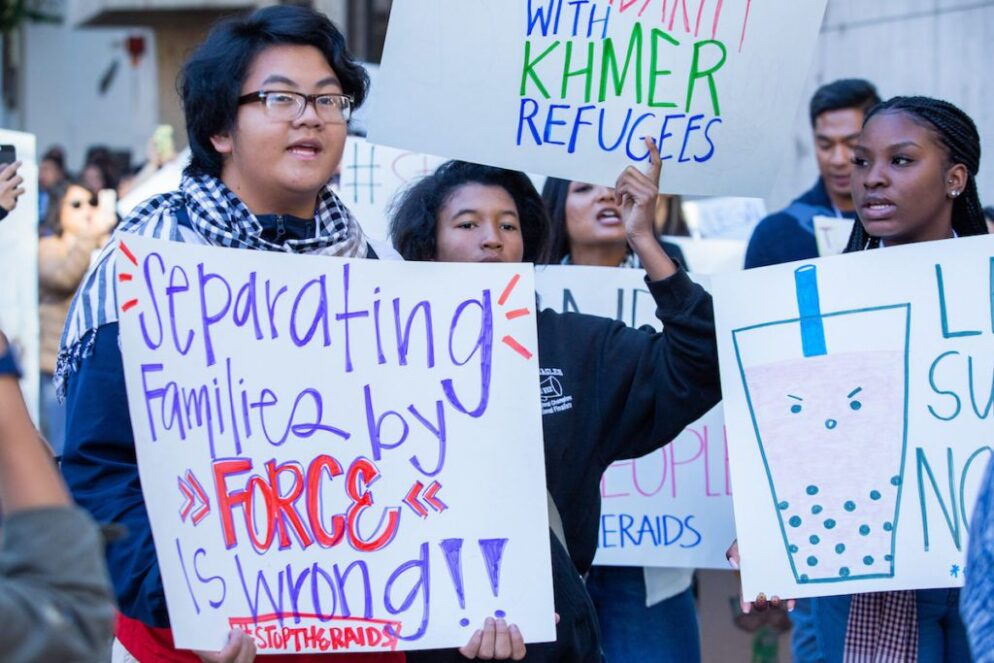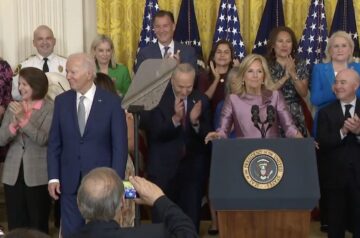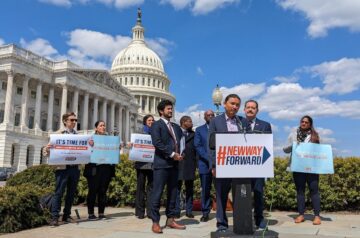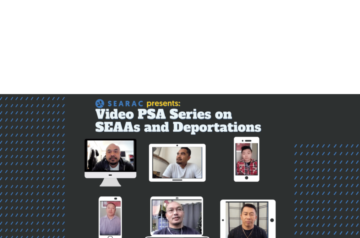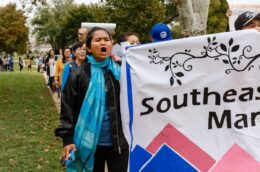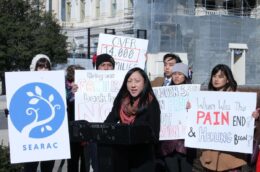SEAAs and other immigrant and refugee communities want a fair chance to thrive, but we cannot do so while we are subject to a dehumanizing, unjust immigration system.
Key resources:
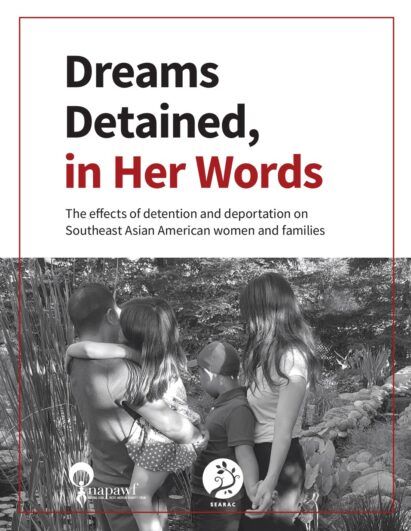


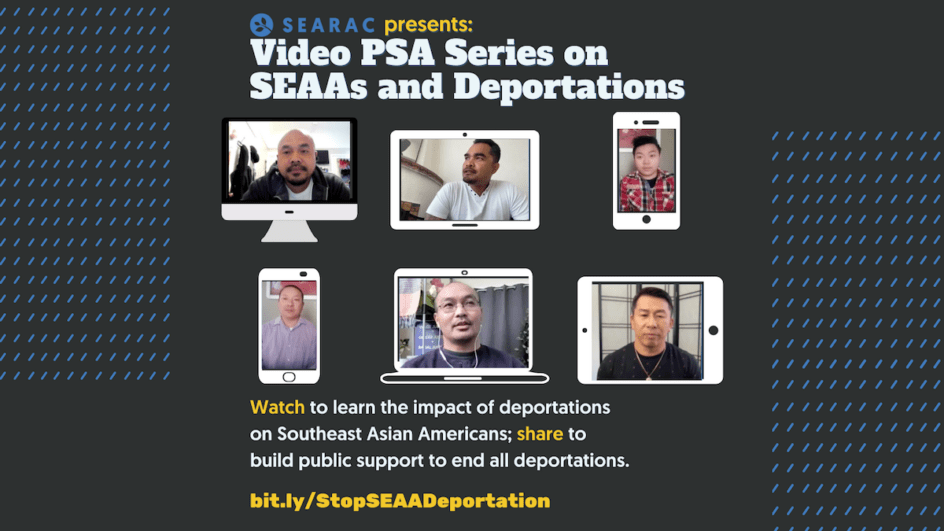
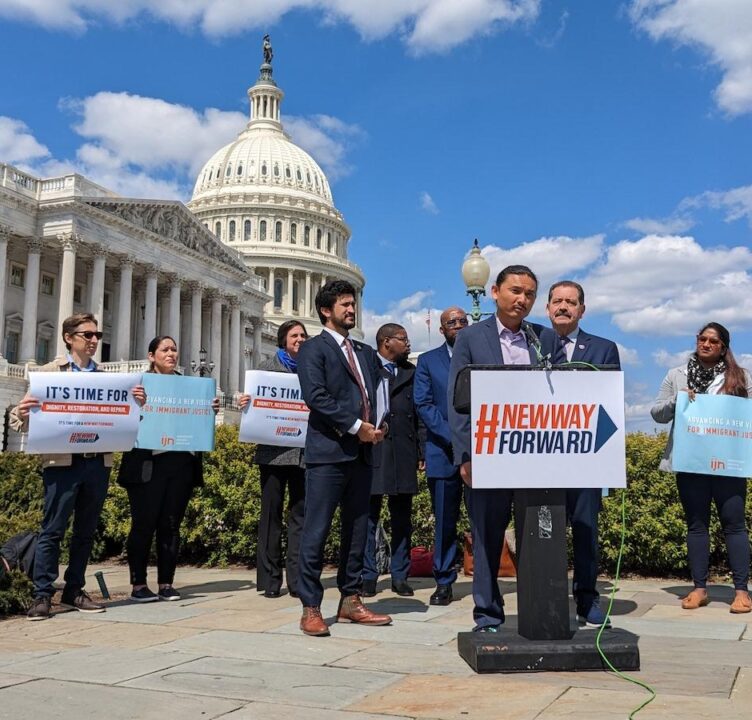
Featured story
The New Way Forward’s Impact on Southeast Asian Americans
There are 15,000 Southeast Asian Americans with a final order of removal. About 80% of removable Southeast Asian Americans have a criminal conviction. Many of these individuals were refugees who have never lived in their countries of origin and no longer have any family ties to Cambodia, Laos, or Vietnam.
Learn more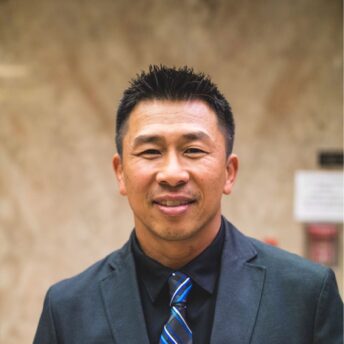
“It felt like I was being double punished. A terrible crime that I committed when I was a youth would eventually lead to my deportation to a country that I had no ties to. I felt like I was unworthy, not valued, that all that I’d done to change my life, to build community while I was inside, doesn’t matter.”
featured in our anti-deportation PSAs
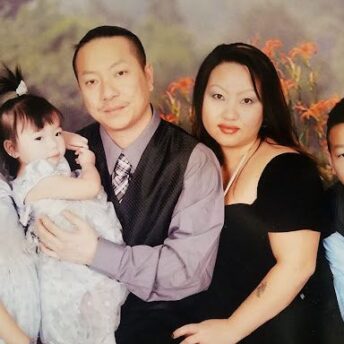
“If I can change back the hands of time, education and knowledge would be the best for any young person trying to figure themself out. Please be aware that I am still human even though I made a mistake in the past. I do have family that loves me, and I love them, too.
featured in our anti-deportation PSAs
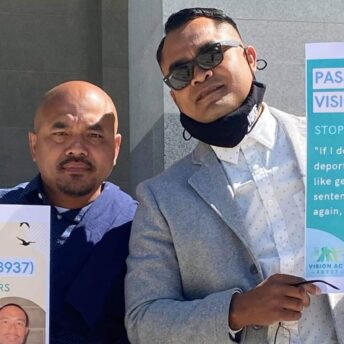
“If we were deported, our family wouldn’t be as happy as they are now. We draw them together and the positive mindset we bring—that heals them and heals our community. I believe deportation is really double punishment for our family, for us, and for our community.”
featured together with impacted community member Tith Ton in our anti-deportation PSAs
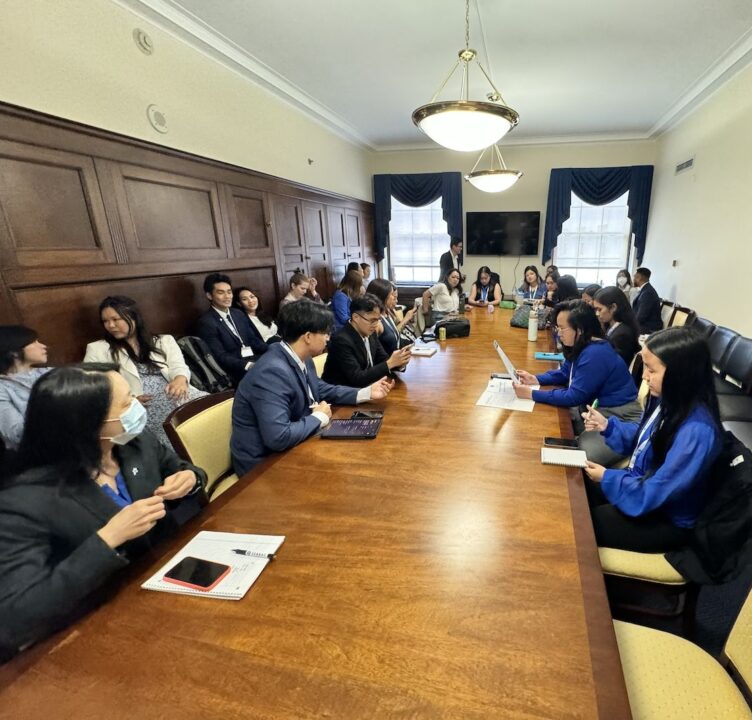
Subscribe to our newsletter for the latest updates on the SEARAC community, and to learn more about how you can get involved.
Join @SEARAC and @seafnofficial for a virtual event celebrating the reintroduction of the Southeast Asian Deportation Relief Act #SEADRA. SEADRA is crucial to restoring humanity and compassion to our immigration system for impacted community members and would end Southeast Asian deportation as we know it. Join us Feb. 19 at 1pm ET/10am PT on Zoom or Facebook. Register at bit.ly/SEADRA2026event.
Feb 13

Thank you to our partners at @seafnofficial for their in-langue Know Your Rights videos, especially as Southeast Asian refugee and immigrant communities are being targeted by ICE. The videos are available in Hmong, Lao, Khmer, and Vietnamese and you can access them on SEAFN’s YouTube (@seafnofficial).
Feb 10

Believe in community leadership and collective power? Support SEARAC’s Leadership and Advocacy Training (LAT) by becoming a sponsor.
Sponsoring LAT means investing in people, movements, and long-term change. Join us in building the next generation of Southeast Asian American leaders. Learn more at bit.ly/2026LATsponsor
Feb 9

Over the past two years, Thuy Do, SEARAC Senior California Program Manager, has partnered with the @ocdehistory and community organizations to bring Southeast Asian American ethnic studies across California.
Thuy writes, “My experiences in these gatherings were emotional and healing, because I got to see, learn and connect with others to advance ethnic studies education through community voices.”
Read more about how community voices continue to shape the future of ethnic studies education in California at the link in our bio!
Feb 7

This is a final reminder that applications for SEARAC`s Leadership and Advocacy Training program are due Sunday, Feb. 8. SEARAC is excited to welcome our next cohort to the nation’s capital this July for our LAT program. Apply to LAT today at bit.ly/LAT2026app!
Feb 6


